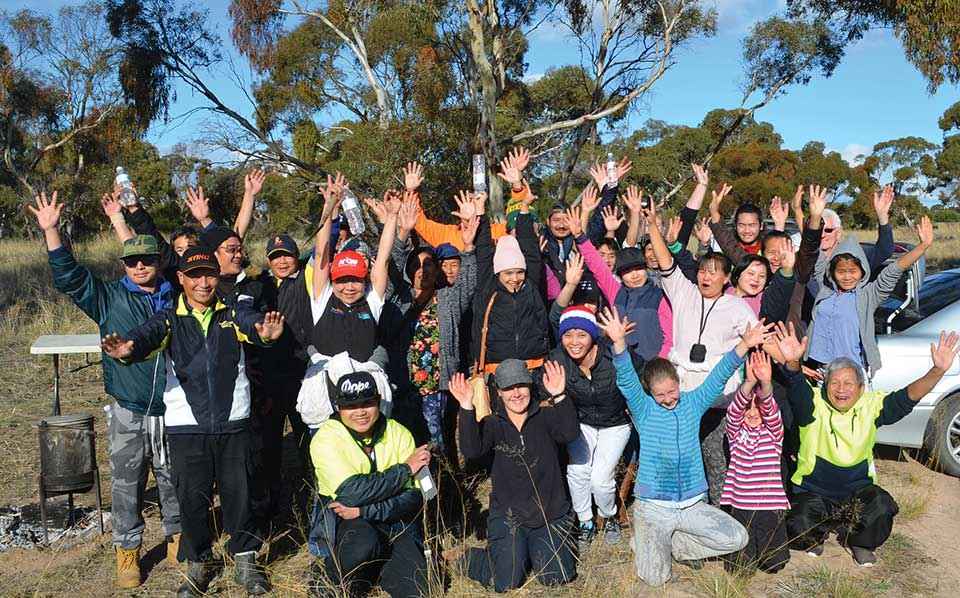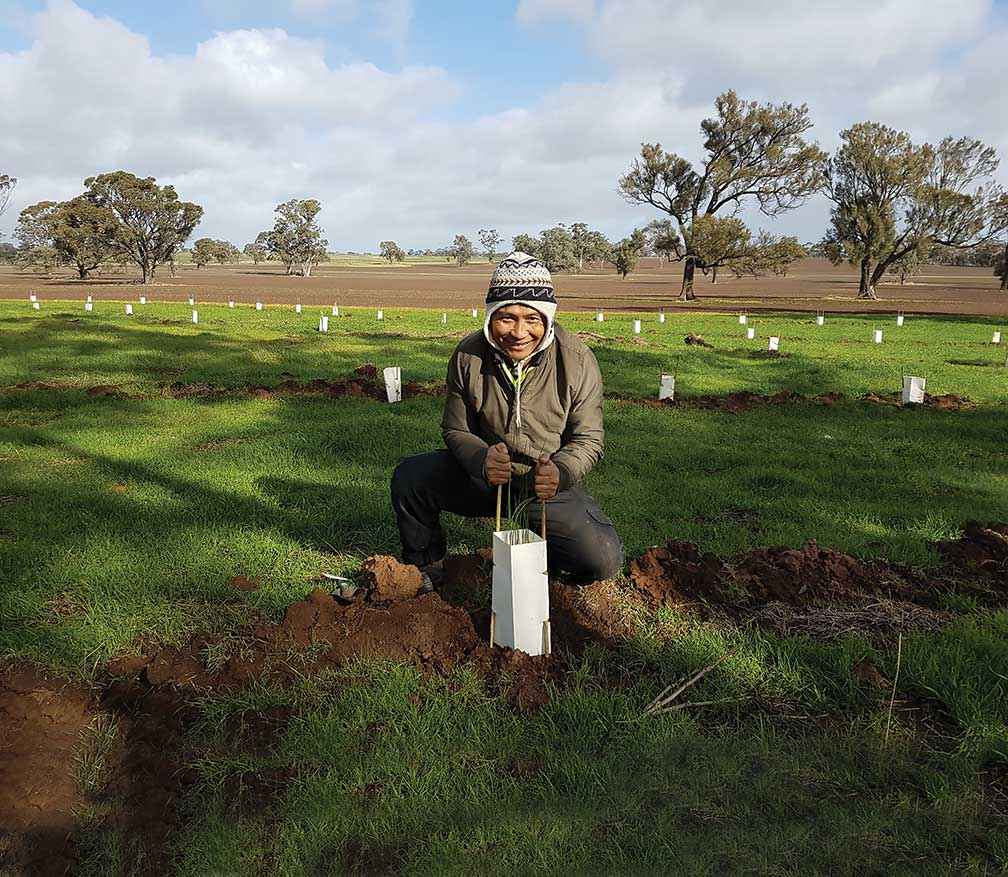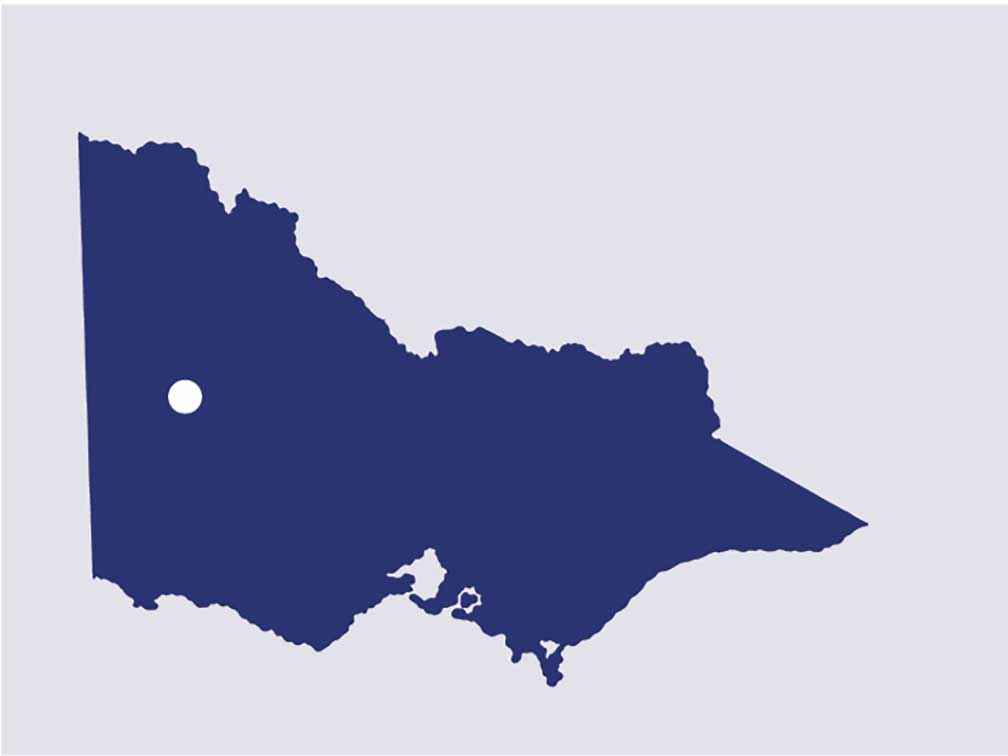Victorian Landcare Magazine - Summer 2020, Issue 77

Project Hindmarsh began way back in 1998 with a vision to reconnect the Big Desert and Little Desert regions of western Victoria through a series of biolinks. Hundreds of volunteers descended on the small Wimmera township of Nhill that year to participate in a major revegetation project.
From the organised chaos of that first planting weekend, Project Hindmarsh has grown to become one of the largest and longest-running revegetation projects in Australia. The Hindmarsh Landcare Network (HLN) works with government agencies, local councils, Victorian National Parks Association, local community groups and landholders to deliver the tree planting weekend each year. More than one hundred volunteers, many from Melbourne, travel to the Wimmera to take part.
HLN is committed to bringing the city and country together and involving as many different sectors of the community in the revegetation effort as possible. When some families from Melbourne’s Karen refugee community moved to Nhill to take up work, they were welcomed to the planting weekends.
The Karen people are from a rural background in Burma. They now make up 10 per cent of Nhill’s population and have now been involved in Project Hindmarsh for more than five years, participating in all aspects of the planting weekends and working alongside other volunteers.

Above: Kaw Doh Htoo from Nhill getting his hands dirty at a Project Hindmarsh planting weekend at Dinyarrak in 2018.
Kaw Doh Htoo and his family fled persecution in war-torn Burma and spent nine years in a refugee camp on the Thai Burma border before being resettled in Melbourne. He moved to Nhill in 2010 for work and became actively involved in many community projects, including Landcare.
“My interest in tree planting is that trees are healthy for the environment and provide homes for animals. I learn many different things being part of the tree planting. I learn how to look after them and how it is very important for us to have trees,” Kaw Doh said.
The Karen volunteers have been wonderful to work with. We’ve learnt about each other – for example they eat two meals a day and would just have a drink when we took a break for lunch. Although their English skills are varied and speaking through translators is sometimes necessary.
There is a universal language about putting a tree in the ground that transcends barriers.
Everyone, regardless of background, gets their hands dirty at a Project Hindmarsh planting weekend and has a great time along the way.
For the last two years, the Karen community has catered for the Project Hindmarsh Saturday evening dinner, serving up a variety of delicious curries to our hungry volunteers. These dinners are now a highlight of our planting weekends.
Project Hindmarsh has planted nearly two million trees in our 21 years of community tree planting. With the ongoing support of our volunteers, the local community, government and landholders we will continue to build a healthier environment. Nhill’s Karen community is now an integral part of that journey.
Jonathan Starks is Landcare Facilitator for the Hindmarsh Landcare Network and his position is funded through the Victorian Landcare Facilitator Program.
For more information email jstarks@hindmarshlandcare.org.au

Above: